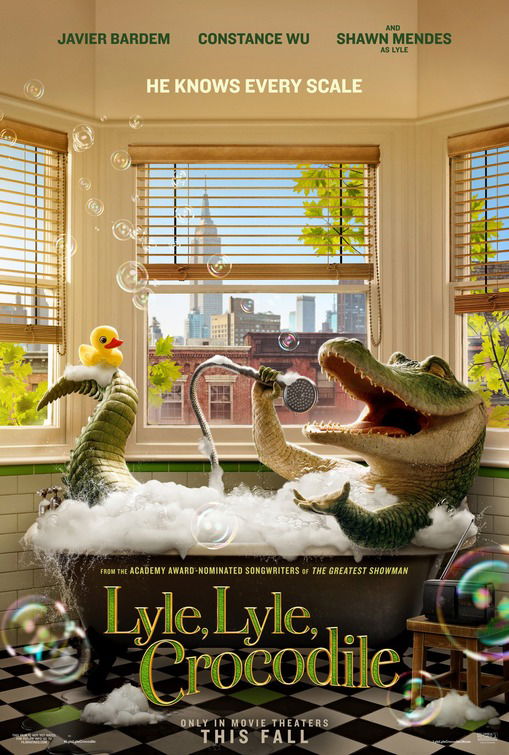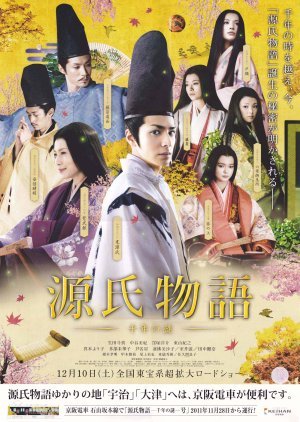“Ancient Psychological Masterpiece”

| None | Light | Moderate | Heavy | |
|---|---|---|---|---|
| Language | ||||
| Violence | ||||
| Sex | ||||
| Nudity |
What You Need To Know:
On an artistic level, THE TALE OF GENJI is a truly great movie and highlights the greatness of the novel, which is extremely long and modern in its style. The amazing part of this particular 2011 movie is that it captures the essence of the novel in a wonderfully entertaining way. However, MOVIEGUIDE® advises strong caution for the lax courtly romantic relationships portrayed as well as the supernaturalism.
Content:
Ancient Japanese worldview with Buddhism and Shintoism intertwined, but more psychological than occult where supernatural spiritual phenomena only highlight psychological concerns such as one woman’s jealousy is visualized in another scene as her being a dark demon trying to kill another woman
No foul language
Violence in an artistic way with spiritual representations where people’s emotions attack others, a death after childbirth
Several scenes of men overcoming women to have sexual relations with them, but they are all fully clothed, and it always seems like an artistic game where the women always participate
No nudity
No alcohol use
No smoking or drugs; and,
Courtly affairs, courtly intrigue, very lax sexual behavior, but with nothing shown in an explicit way.
More Detail:
THE TALE OF GENJI occurs on two levels. First, the author, Murasaki, being urged to write the tale by Michinaga to educate his daughter and reading out the tale as she writes it to the other women and concubines in the palace at Kyoto and also to the Emperor. The tale involves a young man of exceeding good looks and intelligence who was named Genji, who was born to an imperial consort named Kiritsuvo, who was not of the higher castes of consorts. Although his looks and intelligence made the Emperor interested in having him become the Crown Prince, his lower status of a commoner means he can’t do so, but he’s allowed to live in the palace.
When Genji’s marries Aio, she refuses to open up to him and so he pursues a series of affairs. One of them is with Lady Rokugo, who is very jealous of Aio’s relationship with Genji, so much so that her spirit ends up killing another woman named Yugao, who has a relationship with Genji. She even attacks Aoi while she’s giving birth. Seimei, who crosses between both reality and the world of the tale of Genji supernaturally, makes sure the baby is born through excess spiritual warfare while Buddhist monks are chanting an exorcism, but eventually, Aoi dies after the birth. Shemei tells Mishinaga that Lady Rokugo’s wicked sin will harm all of them.
In the meantime, the Emperor has taken up with another consort, who reminds him of Genji’s mother. Genji is also in love with her and has an affair, which produces a child whom the Emperor makes his successor before he dies. The Emperor’s comments seem to indicate that he knows Genji is the father.
At one point, Genji meets Murasaki, crossing the line between the historical and the fictional. Genji asks her when will you stop torturing me, and she answers that his happiness is not possible.
On an artistic level, THE TALE OF GENJI is a truly great movie and highlights the greatness of the novel, which is extremely long and is structured in a way that precedes novels only in the later 20th Century, with history and fiction interpenetrating each other. The movie makes clear which is which. Also, the transformation of passions and emotions into demons is a wonderful device for helping to understand the depth of the psychological issues involved.
As a book, THE TALE OF GENJI set the stage for Japanese culture right up to the 20th Century for a thousand years. It should be noted that at the time of the imperial palace at Kyoto, romantic relationships were common among men and women, with the men as well as women instigating them. The women lived in separate apartments from their husbands, and their affairs were not looked down upon. That said, the women and the men were dressed in layers of clothes and beauty manifested itself in small areas, such as the nape of the neck and movements, not in overall nakedness. Genji’s handsomeness is manifested in his elegant dances. It is also manifested in the poetry and other ways he woos women. Murasaki in fact is invited into the court because of the beauty of her writing. Both men and women were either elevated for the excellence of their writing or demoted for their inability to write beautifully. Men generally wrote poetry, and women wrote what we would call romance novels to tell other women in their apartments at the imperial palace. Most of this highly evolved courtly behavior is foreign to Western Civilization. The amazing part of this particular movie is that it captures the essence of the novel on screen in a wonderfully entertaining way, just as Peter Jackson did when he made LORD OF THE RINGS.


 - Content:
- Content: 
